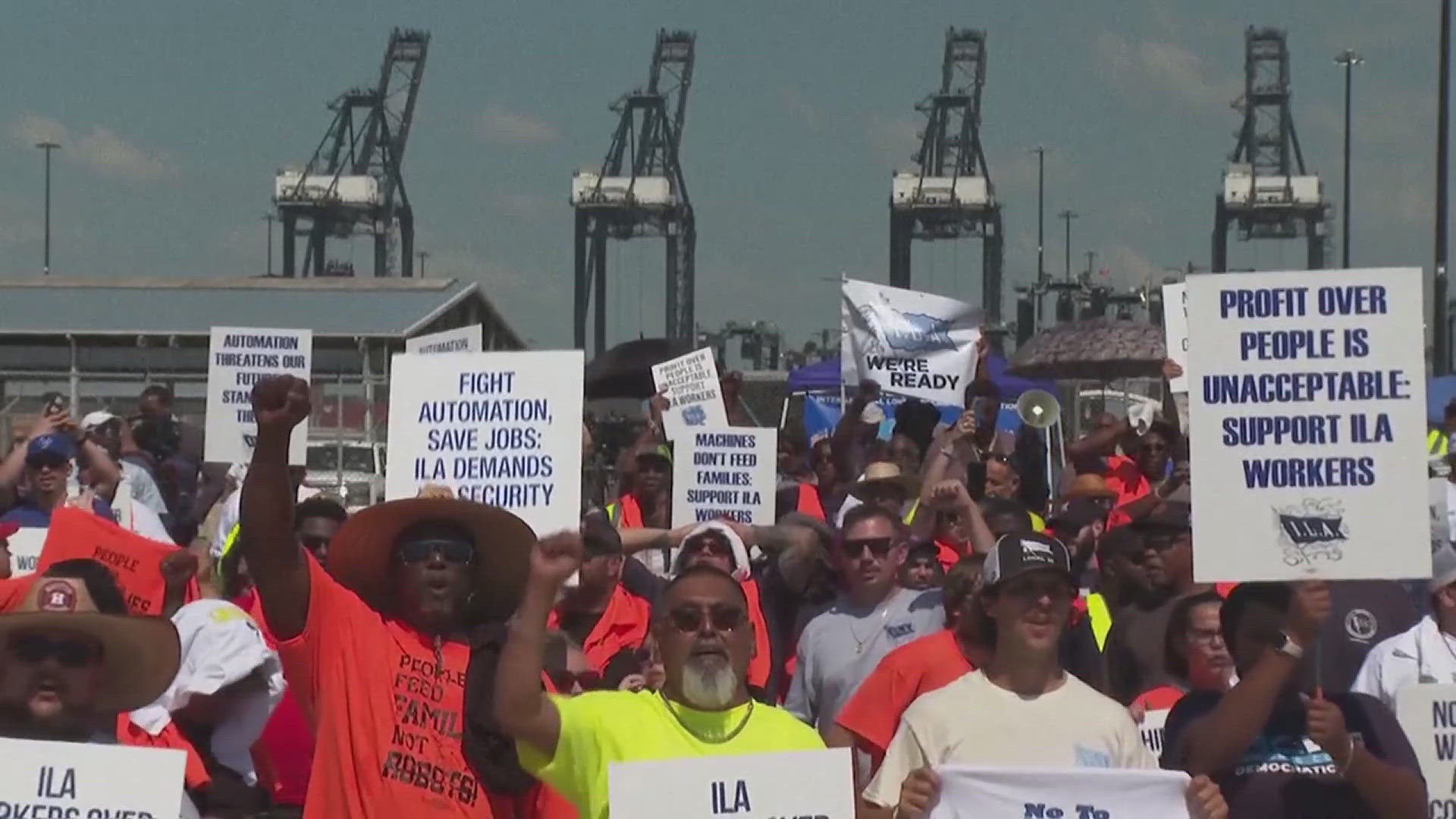ALBANY, Illinois — Editor's note: On Thursday, the International Longshoremen’s Association agreed to suspend the strike until Jan. 15, meaning workers could strike again if an agreement is not ratified. News 8 spoke with an expert on Tuesday about how a port worker strike could impact the local agriculture industry. The video attached aired Oct. 2.
Around 45,000 dockworkers at 36 ports across the eastern U.S. were on strike this week. Workers began walking picket lines early Tuesday in a strike over wages and the ports’ use of automation. The contract between the U.S. Maritime Alliance, which represents the ports, and about 45,000 members of the International Longshoremen’s Association had expired at midnight.
The union has now reached a deal to suspend their strike until Jan. 15 to provide time to negotiate a new contract, a person briefed on the matter told the Associated Press. Union workers are expected to head back to work immediately, at least until January, the person said, who spoke on condition of anonymity because the agreement has yet to be signed.
The agreement will allow the union and the U.S Maritime Alliance time to negotiate a new six-year contract. The person also said both sides reached agreement on wage increases, but details weren’t available.
What could a port worker strike impact?
Consumers wouldn't likely feel any consequences from a strike right away, supply chain experts say. In anticipation of the strike, most major retailers stocked up on goods, moving ahead with shipments of holiday gift items.
Closer to home, most grain elevators in the Quad Cities area load corn and soybeans on barges and ship them down the Mississippi River to New Orleans, which is home to a major port where workers had been striking.
Once it gets there, the grain is transferred from the barge, run through a grain elevator and exported to other countries on a ship, not by container. Some grain and agricultural products are moved by container but those primarily head to the West Coast, where strikes weren't happening. That's because it's cheaper to move exports overseas once they are on the West Coast.
However, one expert said that even though those containers aren't heading east, there could be long-term concerns if another strike on the East Coast lasted for an extended period of time.
"It is kind of this well-oiled machine," Collin Watters, director of exports and logistics at the Illinois Corn Growers Association, said. "When there is even just the small hiccup in those supply chains, it can have these effects you didn't even think about."
Watters added that companies may need to reroute exports to the West Coast, causing congestion.
"It's like pressing on a balloon," he said. "You push it here and it has to go somewhere else. But you don't necessarily know how that plays out and that uncertainty is a problem."
Prior to this week, 1977 was the time when port workers on the East Coast hit the picket lines. That strike lasted for 44 days.

